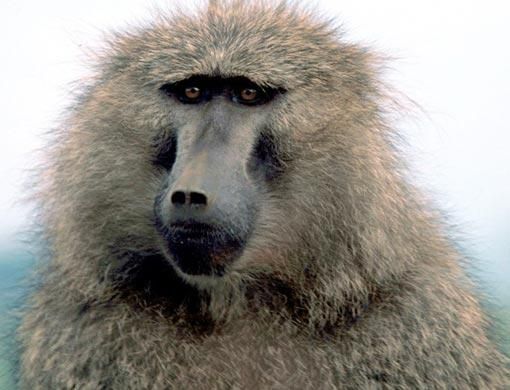Taif: Angered over the attacks by a hungry baboon population, several inhabitants in the southern regions of Saudi Arabia have lodged complaints with the police seeking urgent intervention.
People in these regions are living in fear of a possible attack by baboons at any time.
"Most of the complaints came from people of Taif, Al Baha and Majarida," a source at the National Wildlife Protection Authority told Gulf News.
Baboons, which are found in large numbers in these mountainous regions, frequently attack homes and damage farms.
Baboons are reported to have attacked homes and injured several people in the southern regions of Taif, Al Baha and Majarida recently.
In search of food, the hungry baboons attack villages and damage farms, especially those of roses, pomegranate and other fruits.
There is panic over baboon attacks on houses and schools in Al Baha after a group of baboons attacked students of the College for Girls recently.
Campus fear
Baboons sneaked into the college campus after climbing the huge wall. The presence of large numbers of baboons on the campus caused panic among both students and teachers, who cried for help. Local people rushed inside to drive them out of the campus.
According to a source at the National Wildlife Protection Authority, people in these regions are afraid of possible surprise attacks by baboons, which are leaving their hilltop dwellings in search of food.
"Lack of rain, drought and drying of trees are other factors for this rising phenomenon," the source pointed out. "In some cases, the number of baboons attacking houses and damaging farms stood at nearly 100," he said
Naif Al Shahri, one of the victims of a baboon attack who filed a complaint, said baboons attacked his farm, which is regarded as one of the largest in the village.
"I lodged a complaint with the Makkah governorate and police but to no avail," he said. "Baboon monkeys, which are known as Al Saadan in Saudi Arabia, are attacking most of the cities and villages in Taif region frequently and they are gathering in large numbers among inhabited regions and run amok," he said.
Naif said the baboons swooped down in large numbers from their hilltop dwellings on villages and residential districts in search of food and water.
"Running amok, they attack children, ransack houses and damage cars," he said.
On his part, Abdurahman Abu Riyah, a Saudi journalist based in Al Baha, said that baboons pose a big threat to crops in the region.
Farmers are facing difficulties in tackling this problem as most of them do not even have an air gun due to difficulties in possessing a licence.
Several people of Majarida have urged authorities to take urgent measures to protect them from the attacks of baboons.
Mohammad Al Fawaz, one among them, said people in the region are living in panic due to frequent attacks of baboons. "They attack my house every day. My car was damaged and clothes were snatched. They prevent my family members and children from going out even to the courtyard," he said.
In papers
Turki Al Dakheel, a Saudi writer, in an article in the local Al Watan Arabic daily, said in a lighter vein that strict punitive action should be taken against baboons for their "violation of traffic rules and regulations and for gathering in public places without securing licences from the concerned authorities".
Town sign: Displeasure at emblem
People in Taif voiced their displeasure over the Supreme Tourism Commission's decision to choose baboons as Taif's emblem on the city's tourist map. They said the Commission has ignored important archaeological and historic sites that should have been included in the Tourism Map designed by the Commission.
Several people said they were stunned by the emblem that depicts the summer resort, as if nothing else distinguishes the city but baboons. They asked the commission to use archaeological and historic sites for which Taif is equally famous.










